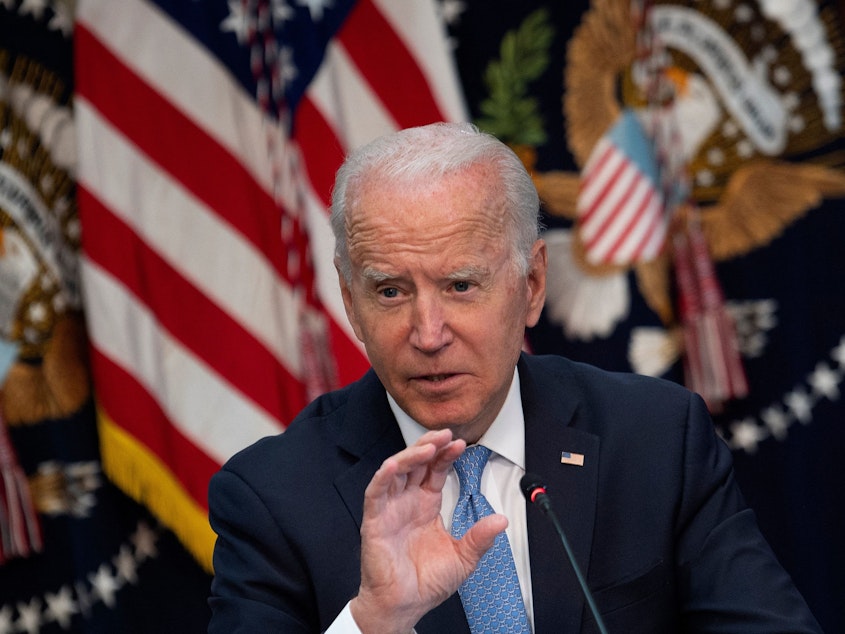Why Biden Is Taking The Rare Step Of Sharing Nuclear Submarine Tech With Australia

In a rare step, President Biden is announcing Wednesday that the United States plans to share its nuclear-powered submarine technology with Australia.
The announcement comes as Biden tries to refocus U.S. national security and economic policy on the threat posed by China.
There has been only one other time that the United States has shared what a senior administration official described as "extremely sensitive" technology — more than 60 years ago, back in 1958, with Great Britain. The United Kingdom will be involved with the new trilateral security partnership, known as AUKUS.
The decision comes amid escalated tension in recent years over territorial disputes in the South China Sea — a major shipping lane with oil and natural gas resources — with China building military outposts on several small reclaimed islands. The U.S. and other regional partners have stepped up their military presence in the region, and the U.S. is in the process of reorienting its military posture toward the Indo-Pacific.
Ahead of the formal announcement from the White House, a senior U.S. administration official insisted to reporters that the new security cooperation with Australia was not directed specifically at China.
Sponsored
"I think one of the things that the United States has done most effectively in the Indo-Pacific is to secure peace and stability and to be the ultimate guarantor of that rules-based order," the senior official said. "Over the last several years there have been questions: Does the United States still have the stomach? Do we have the wit and wisdom that we want to continue to play that role? What President Biden is saying with this initiative is, 'Count us in.' "
It's about nuclear propulsion, not nuclear weapons
The three AUKUS countries will launch an 18-month effort to determine how best to share the nuclear submarine propulsion technology, which will allow the Australian navy's submarines to travel faster and farther, with more stealth.
"Australia has no intention of pursuing nuclear weapons," the official told reporters.
The Biden administration is working to move past the 20-year war in Afghanistan and the chaotic U.S. exit from Kabul. Biden has put countering China at the center of his economic and national security efforts, describing it as the biggest challenge of this era.
Sponsored
Australia's prime minister will visit next week
Biden is set to meet in person at the White House next week with the leaders of India, Japan and Australia — what's known as the "Quad."
He invited leaders of Japan and South Korea as the first two foreign leaders to visit the White House in person earlier this year. And his first foreign trip in June to the Group of Seven and NATO was also focused on the economic and security threats posed by China.
For only the second time since taking office, Biden spoke last week to Chinese President Xi Jinping. He did not discuss the new security partnership "in any specific terms," the senior U.S. official said, but emphasized to Xi that the United States planned to play a strong role in the region. [Copyright 2021 NPR]



